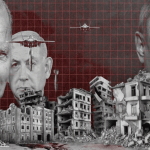It is already past warnings issued by observers in Ethiopia and abroad about an imminent disintegration of Ethiopia. Recent events confirm Ethiopia is going downhill, leading those concerned with Ethiopian affairs to prepare post-fall scenarios in an attempt to avoid the harrowing consequences of disintegration, the signs and indications of which are coming in sight.
Observers of Ethiopia, and even its foes and rivals, realize that the country’s disintegration entails an extreme strategic threat to the internationally so-called Grand Horn of Africa, which includes East Africa starting from Sudan and South Sudan and extending along the Red Sea coast and the Indian ocean, comprising all countries spread over this area that have their security and strategic interests intertwined with those of Ethiopia, and that are threatened more than ever before.
Signs of disintegration have been manifesting for years. Recent developments, however, domestically and on the borders, highlighted these signs, which included conflicts between regions and ethnicities. Moreover, the federal government in Addis Ababa portrayed its fighting with the Tigray as an attempt to control security.
However, as events unfolded, they took the whole scene to new dimensions that did exceed gross humanitarian abuses to opening the doors to foreign forces (i.e. the Eritrean forces) undermining the region’s livelihood capabilities and dismantling its local government structure. These abuses absorbed the attention of the international community, and several human rights and accountability reports have been issued revealing “war crimes” committed against civilians and calling on perpetrators to cease abuses and leave the conflict area. Similarly, the Oromia region, from which the current Prime Minister, Abiy Ahmed, hails, has been put under an unannounced military rule since mid-2018. Since then, a war the world knows nothing about has broken out in the remote areas of the Oromia region and the federal security forces have been widely involved in intimidating families, prisoning and raping women and girls, beating and shooting parents and sons, burning crops, and destroying homes repressively as they pleased. The Oromos weren’t to remain silent. The sweeping abuses led to the birth of a native resistance to confront this mounting repression. With a growing desire to break free from this horrible nightmare, Oromo youth built what is known now as the Oromo Liberation Army (OLA) which witnessed mass joining of new members during the past two years. On the sidelines, there were widespread arrests and detentions of Oromo’s political leaders, targeting all those who were suspected of managing or supporting the OLA. All of this makes labeling the situation in Oromia as being “ungovernable” a very accurate description.
Likewise, Sidama and Wolayta regions are witnessing unrest and unlimited challenges following their quest for “self-rule” as per Ethiopia’s constitution which gives them the right to self-determination. Peaceful protests in public squares across Sidama and Wolayta were met by brute force from the government, subsequently followed by the removal of the regional administration as has been the case with leaders of the ruling Tigray People’s Liberation Front.
The Amhara region is not faring any better. Perheps it is the main element that participates with Abiy Ahmed’s government in creating this complex stage. The Amhara region is in a long-running war with all of its neighbors. On one hand, there is its conflict with the Oromo region with conflicting claims allegedly involving the region’s administration in addition to conflicts over land possession which makes coexistence between the two regions far from probable particularly with the recent developments of the Amhara given undue power against its foes. Amhara’s actions in the Tigray and Benishangul-Gumuz regions go beyond traditional conflicts or disputes as the Amhara have been engaged in widespread, dreadful crimes against these two regions, described today in international reports as “war crimes” which the Ethiopian state will pay its price.
In Addis Ababa’s war against the Tigray, the Amhara were its striking force and ardent supporter and they instantly got rewarded for carrying out their job far above and beyond the required. As a reward for their support, they annexed West Tigray by force, which they consider as their biggest trophy and where they are carrying out the largest ethnic cleansing by getting rid of the indigenous Tigrayans, owners of the land, to have a pure Amhara race.
A similar problematic situation exists in Benishangul where the Amhara are exercising armed intimidations and dispossession against the indigenous people. Even worse, they are murdering refugees and those fleeing the Tigray war. This is a strong indication of the size of the internal disintegration and an evidence of Ethiopia being on the brink of a worse cataclysm that, most notably, will be the start of extended periods of hostility across diverse regions and ethnic groups, particularly with the spread of genocide and forced migration and dispossession, all of which are crimes that ensue a cycle of mutual vengeance that leaves Ethiopia in armed conflicts for decades.
Viewed from the prism of the prime minister and his ruling faction, federalism is the mother of all evils, and since Ahmed took office, he has been aiming at undermining it through a coup whose gloomy consequences are starting to unfold, casting dark shadows over regional security. These dark shadows of Ethiopia’s insecurity didn’t spread over Ethiopia only as is obvious in the case of Sudan and Eritrea. Sudan is trying to survive fragments of insecurity and armed fighting with large numbers of Ethiopian refugees seeking safety on its lands, let alone being dragged into a war with Ethiopia over borders, which places more pressure on and threats to the region’s fragile stability.
Eritrea has already played a role in the war and its involvement had had an impact on it. The question is whether the implications of war will go beyond these two neighbors to expand to the entire Horn of Africa. The answer is out of Ethiopia’s control four months after it has entered this dark tunnel.
More on this in next week’s article.
This article was published in Ad-Dustour newspaper on Wednesday, 10 March 2021.











